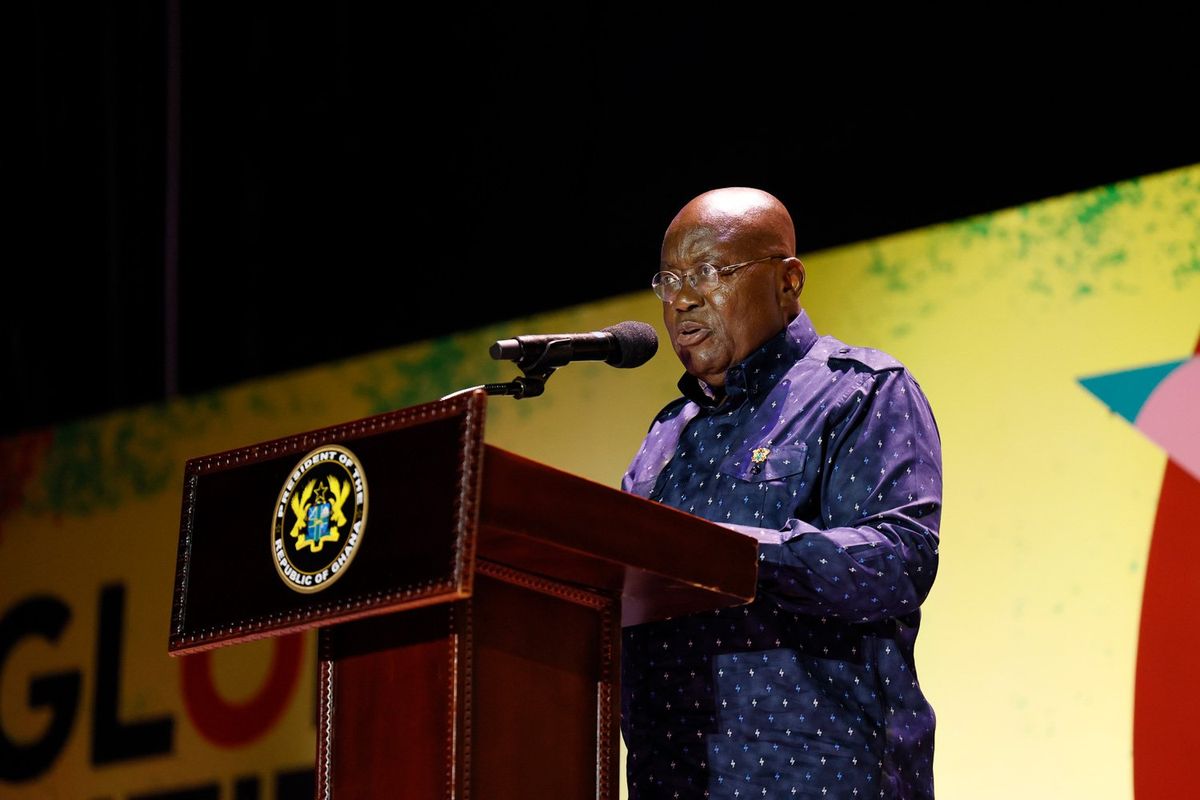Ghana's Supreme Court Dismisses Challenge to Anti-LGBT Bill, Paving the Way for Ratification
Ghana's LGBTQ community finds itself bracing for challenging times as an anti-LGBT bill that would punish promoters of LGBTQ lifestyles with up to 10 years of incarceration.

President of Ghana, Nana Akufo-Addo speaks on stage during Global Citizen Festival 2022: Accra on September 24, 2022 in Accra, Ghana.
On Wednesday, Ghana's Supreme Court ruled to dismiss a legal challenge to block parliament from passing a stringent anti-LGBT bill, clearing the path for its potential ratification.
The bill, which has been under debate in the West African nation since August 2021, seeks to criminalize same-sex relations, being transgender, and advocating LGBTQ rights. The majority of lawmakers are in favor of the bill.
Critics and activists argue that the passage of the Human Sexual Rights and Ghanaian Family Values bill would further restrict freedoms in a country where gay sex is already punishable with up to three years in jail.
In a unanimous decision, the court stated that the applicant, Dr. Amanda Odoi, an academic researcher, failed to convince the court to halt parliamentary proceedings on a bill already being discussed by Members of Parliament (MPs). Dr. Odoi's case challenged the bill's legality on the grounds that parliamentary leaders did not conduct an economic impact analysis of its potential consequences if enacted.
The Human Sexual Rights and Family Values Bill, 2021 proposes the imprisonment of LGBT individuals for a maximum of three years and up to 10 years for those promoting it. The bill has faced widespread criticism for violating the rights of sexual minorities in the country.
Supporters of the bill, including religious and traditional leaders, have advocated for harsh penalties, including jail sentences for individuals supporting LGBTQ rights. Moreover, publishing content considered pro-LGBTQ or challenging traditional binary gender identities could also result in prosecution.
It is essential to note that similar laws in other countries, such as Uganda's anti-LGBTQ law signed by President Yoweri Museveni in May, have received global condemnation for their severity, including the imposition of the death penalty for "aggravated homosexuality."
The United Nations, in 2021, expressed concerns that Ghana's proposed law would institutionalize state-sponsored discrimination and violence against sexual minorities. Critics of the bill also raised objections to its potential promotion of conversion therapy, with sentences potentially reduced if those found guilty request such treatment — an approach previously condemned by U.N. experts for its risk of leading to torture.
- Ghana's Anti-Gay Bill and What It Means For the Nation ›
- Ghana’s LGBTQ+ Community Faces Increased Backlash During Pride Month ›
- Ghana Lawmakers Push for Furthering Anti-LGBTQ Legislation ›
- Ghana Parliament Passes Bill Criminalizing LGBTQ Lifestyles - Okayplayer ›

